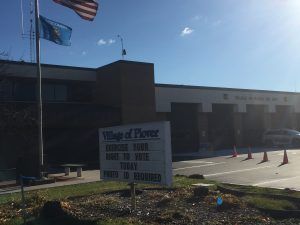We should all strive to be the agency of first resort in our communities; the go-to place for anything and everything our residents may need. Election Day is no exception. Fire stations have a long-standing history of being one of the centers of our communities, and voting at fire stations is a great tradition and community service. But are you ready to throw open your doors in this age of public scrutiny and security concerns?
With Election Day upon us tomorrow, take a close look at your plan for participation in our democracy. How will you protect the safety of voters coming to your facility? How will you maintain a security posture that protects your personnel, equipment and good name?
Volunteer Firefighter’s Insurance Services published a great list of things you should consider before Election Day to achieve these goals. The list includes these tips.
- Limit voter access in the building to the polling area only; voters should not be able to roam the building freely.
- Have the voting entrance close to the area where voting will occur.
- Provide clear signs on where to park.
- Select restrooms close to voting room. Consider portable restrooms if no restrooms are close to the voting room.
 Don’t forget about the outside. Make sure the station looks its best. Pick up trash and keep the parking lot clear of firefighters’ vehicles — this opens spaces and limits the chance that a voter will hit, scratch or otherwise damage a car.
Don’t forget about the outside. Make sure the station looks its best. Pick up trash and keep the parking lot clear of firefighters’ vehicles — this opens spaces and limits the chance that a voter will hit, scratch or otherwise damage a car.
Keep in mind access to the building for the elderly or people with disabilities. Make sure floors inside the building are clean and dry. If it looks like rain, have a plan to keep the floors dry and post signs if they are wet.
Have bold, clear signs that direct people where to go and where public restrooms are. Also have clear signs if there are areas the public should stay out of.
Emergency response
For many of us, Election Day is not a day off. We still have to complete our duties and run calls. Have a traffic plan in place that allows for the safe response to calls and the safe return of apparatus to the station at the completion of the call.
It is also more important now than ever to be vigilant tomorrow. This has been an unusually bitter election cycle with accusations of domestic fraud and foreign manipulation. Add to that our lingering climate of civil unrest, distrust in government and homegrown terrorism, and the potential for disaster needs to be planned for.
Obviously, you’ll need to plan for how to respond to the routine or coincidental medical emergencies voters or workers have while at the station.
But the firehouse may need to go from open, accessible and inviting to a fortress in the blink of an eye. So plan for the more deliberate and nefarious emergencies.
Make sure the firefighters and officers at the station know what to do if the building needs to be quickly locked down in the event of a shooting or bombing. And they need to know where and how to shelter civilians at the station if necessary.
Have the firefighters at the station keep an eye out for suspicious activity and have a firm and clear plan for how to communicate those activities to police.
Guests in the house
I also suggest that you reach out to the local election authority and find out exactly what they expect from you in terms of things like tables and chairs for poll workers, power requirements and the exact times the polls will be open.
Likewise, don’t be shy about letting the election authority know what you expect from them on Election Day. Have a point of contact designated from your agency so that issues can be resolved quickly and effectively.
It is also important to know the election laws in your town or state. In many locations. it is illegal to campaign (even wearing a button or a shirt supporting a candidate or issue) within 25 feet of a polling place. So make sure your members know what they can and can’t do in that facility on Election Day.
Part of the Election Day planning needs to acknowledge that firefighters are also part of the community. They too may have strong feelings and opinions about this election and its candidates.
They need to be told in no uncertain terms to keep their interactions with the public and election workers politically neutral. Even conversations between a firefighter and someone where they completely agree on politics can add unwanted tension and show the fire department in a negative light to observers who may not share those views.
If there are firefighters on staff who cannot maintain that face of political neutrality, they should not be working that day.
We want the public to think of us as part of the community. We want them to feel safe and comfortable coming to the firehouse, after all it’s their house too.
Take the time to plan the event and make it a win for everyone. Be the agency of first resort in your community.












